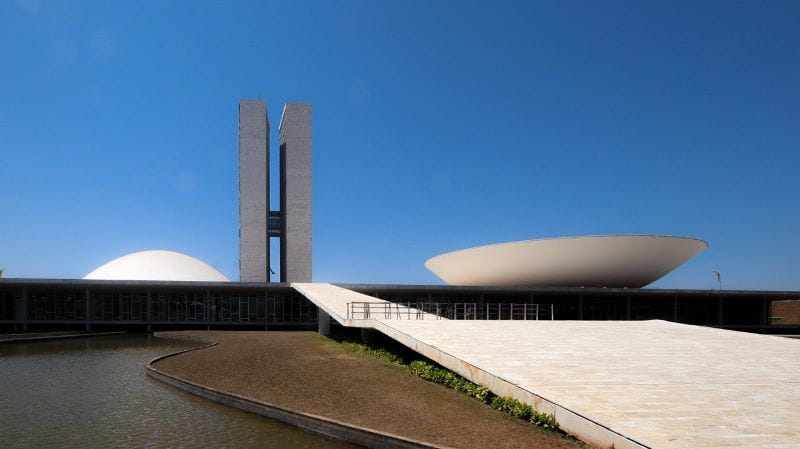Brazil is getting closer to passing the gambling law
In a historic vote in the Chamber, federal deputies approved by 246 votes against 202 the text PL 442/91 that legalizes gambling in the South American country. This does not mean the legalization of gambling by any means, but it is a very important step that has been celebrated by the industry. Now it's up to the Senate to ratify the law that is still threatened by the veto of current President Jair Bolsonaro. With 2022 full of important events such as the presidential elections and the Soccer World Cup in Qatar, Brazilian society is quite divided.

The Brazilian Chamber of Deputies has approved the proposal PL 442/91 for the law that will regulate gambling in the South American country. ©renatolaky/Unsplash
The new legislation approved contemplates the legalization of gambling in general, that is, sports betting, casino games, bingo, the popular jogo do bicho and the online game. The legislation provides a regulation in all segments of gambling , something that many operators, national and international, were claiming.
There was great expectation about what could happen with online games, especially in the segment of online sports betting due to the celebration of the Football World Cup in Qatar at the end of this year and where the Brazilian national team starts as one of the great favorites. Anyway, the final implementation of the law will not be easy, there is still a lot of resistance from some conservative sectors of Brazilian society.
The most important aspects of the law of gambling
It does not seem that the current President Jair Bolsonaro will modify his inflexible stance . There are many details that the new legislation takes into account and a number of amendments were also approved during the session in the Chamber.
One of the most important points is that it concerns the supervision of gambling. It is foreseen a contribution of 17% on gross income . A fee is also created for the issuance of the license and a 20% levy for net profits over 10,000 reais. In this sense, and as in other regulations of the region , it is proposed to create a regulatory body at the federal level, responsible for the granting of licenses and permits for online gambling operations.
Another of the most interesting aspects of the new regulation is the one related to the destination of the money collected by the federal authorities. Programs related to public health and sports are priorities. In these areas, the financing of initiatives that combat gambling addiction and protect players it is also preferred.
The Colombian regulatory entity, Coljuegos, has used the resources obtained from the gambling industry to financing the country's public health . That is why the regulation of gambling seems so important for countries, as a way to obtain resources that would otherwise be very difficult to obtain.
However, it seems that the Senate has now stepped on the brakes a little. The Senate would be the chamber in charge of processing the law that, if it obtains a broad consensus, could be approved urgently. However, internal sources would have stated that the bill needs a broader debate , which would leave the law in a certain impasse. This means that it seems very unlikely that the law will be voted on this year. Undoubtedly, the upcoming general elections scheduled for early October play a key role. The main candidates have preferred not to pronounce on the law of the game.
A divided society
The legalization of gambling seems to polarize Brazilian society. According to a survey conducted at the end of February and the beginning of March of this year on the basis of 3,000 interviews throughout the national territory, 48% would have been against the legalization of gambling and 43% in favor, while the remaining 9% do not answer.
It is known that the evangelical sectors of the country are, in general, against the legalization and regulation of gambling, and this is reflected in the survey conducted. A 54% of declared evangelicals would be against , while the percentage would drop to 48% among Christians. The same percentage among those who do not declare themselves of any confession. A curious fact is that among the interviewees who support the administration of current President Jair Bolsonaro, an important majority, 57%, declares themselves in favor of the legalization of gambling.
The evident polarization of Brazilian society around gambling shows that a change of mentality is still necessary among the population so that accept the benefits that regulation entails , as we have seen in other jurisdictions in the region such as Colombia or Argentina; and politicians are now in charge of making this change a reality.


